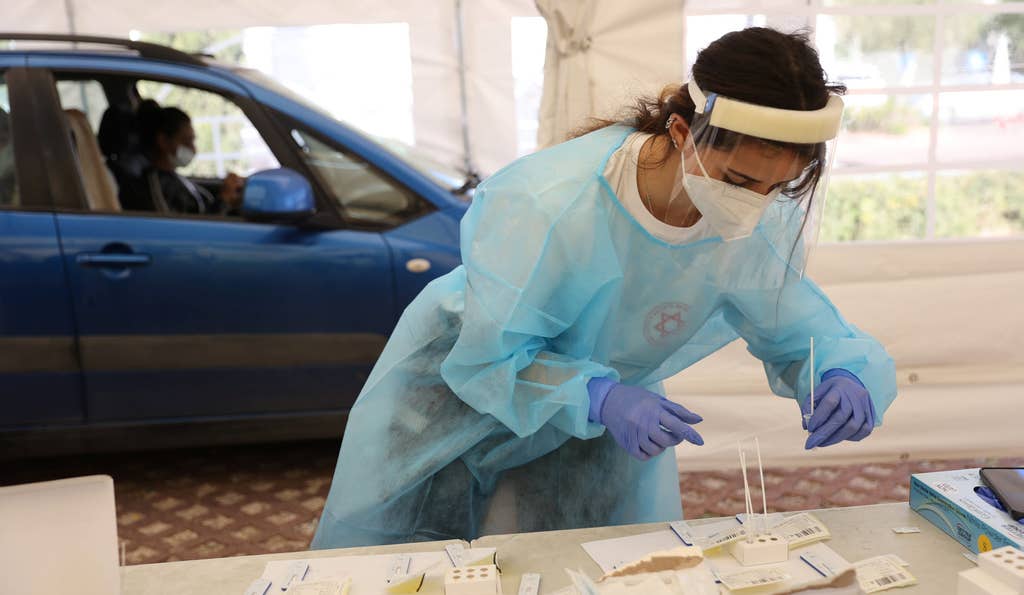
Israel will reduce the isolation period for people diagnosed with COVID-19 from seven days to five, after Prime Minister Naftali Bennett and Health Minister Nitzan Horowitz both agreed to the move on Monday.
A coronavirus carrier must have two negative tests and no symptoms in order to leave isolation after the fifth day.
The change was given approval by Health Ministry director-general Nachman Ash.
Horowitz and Bennett also agreed to provide free home testing kits to anyone who wants them, but no details were announced.
The decision, which came after health experts publicly advocated easing the isolation rules over the past few days, will go into effect on Wednesday.
According to the decision, people under 60 who are not vaccinated and were exposed to a confirmed carrier must quarantine for five days as well, and have a negative test to end it.
For confirmed COVID cases to leave isolation after the fifth day, they must have a negative result from a home testing kit on both the evening of the fourth day and the evening of the fifth day, and have no symptoms. People who are unvaccinated and were exposed to a confirmed case (and who are under the age of 60 and not in an at-risk group) must isolate for five full days and be tested at the end of the isolation period.
Bennett explained that the high number of those infected and those in isolation “is creating a heavy burden on the economy” and that the change would both protect the health of the public and allow economic activity.
The country’s coronavirus czar, Salman Zarka, meanwhile said the number of COVID carriers in Israel has still not peaked, but added that the omicron variant causes relatively mild illness. “We are examining the possibility of allowing essential workers to continue their work under certain circumstances, both in the health system and in other systems,” he said. “We will continue to track infection, hospitalizations, [and] tests and we will adjust our policy whenever it is necessary.”

